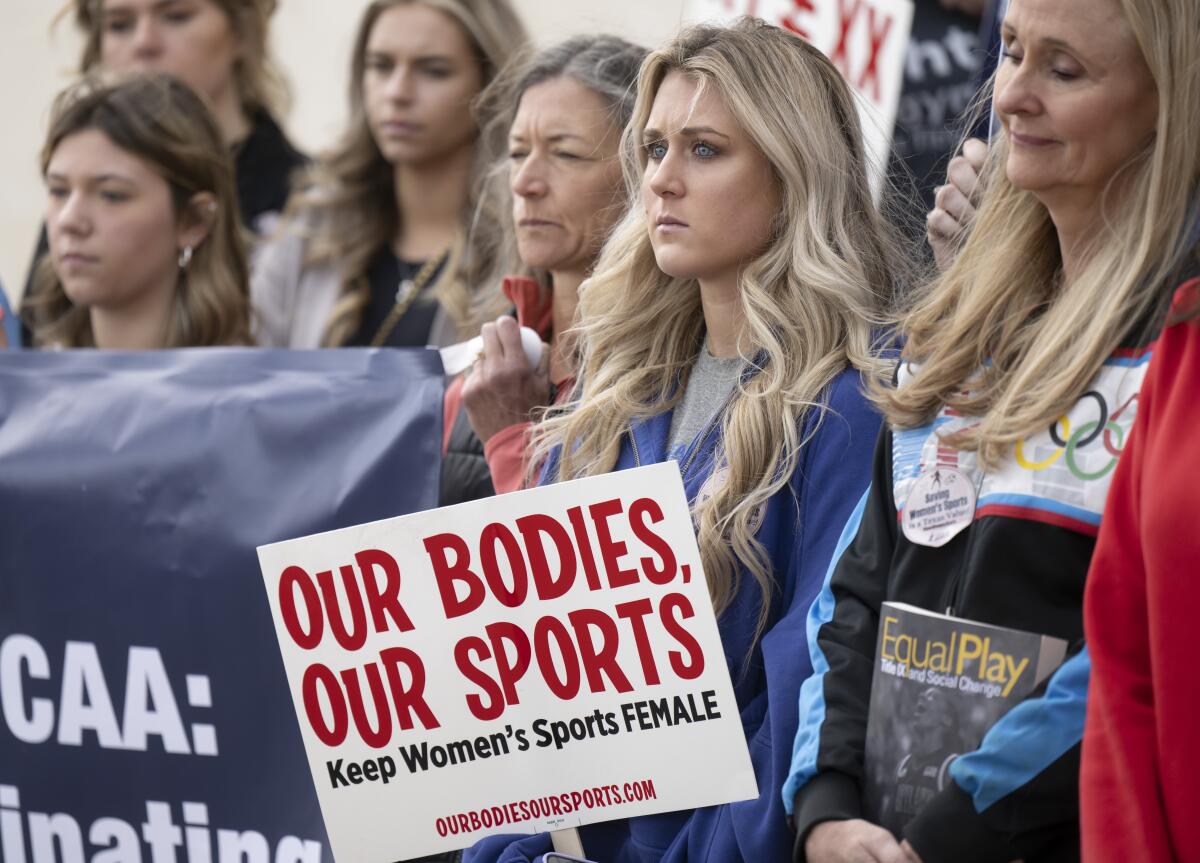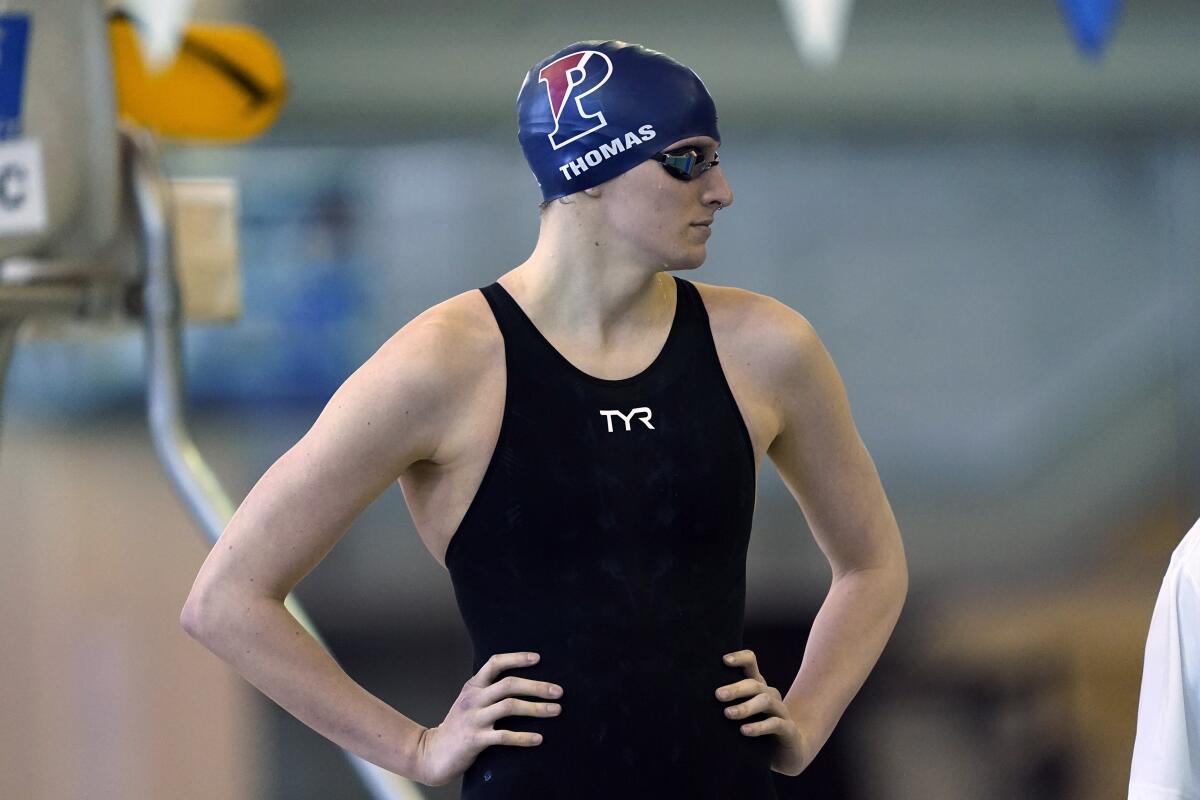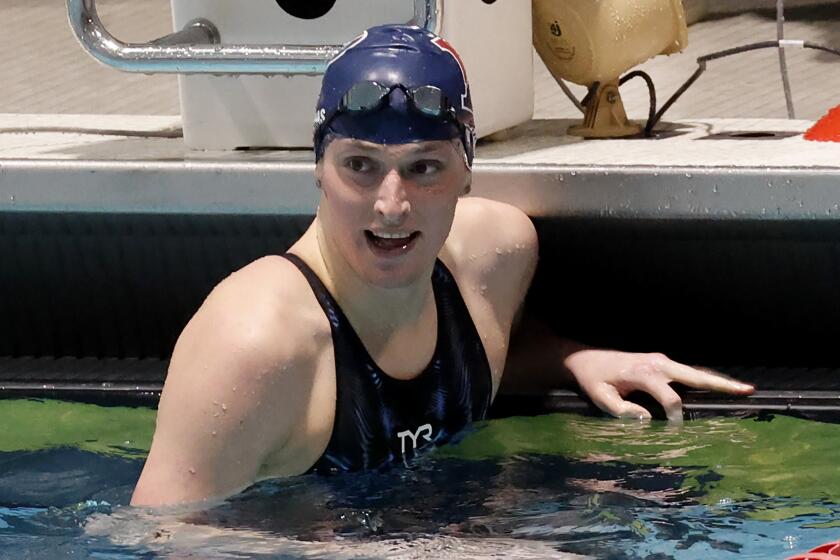College swimmers and volleyball players sue NCAA over transgender policies

- Share via
ATLANTA — Former Kentucky swimmer Riley Gaines was among more than a dozen college athletes who filed a lawsuit against the NCAA on Thursday, accusing it of violating their Title IX rights by allowing transgender woman Lia Thomas to compete at the national championships in 2022.
The lawsuit, filed in U.S. District Court in Atlanta, details the shock Gaines and other swimmers felt when they learned they would have to share a locker room with Thomas at the championships in Atlanta. It documents a number of races they swam in with Thomas, including the 200-yard final in which Thomas and Gaines tied for fifth but Thomas, not Gaines, was handed the fifth-place trophy.
Thomas swam for Pennsylvania. She competed for the men’s team at Penn before her gender transition.
As many celebrate the Title IX 50th anniversary, transgender athlete rights are the next frontier proving immensely difficult to sort out.
Another plaintiff, Tylor Mathieu of Florida, finished ninth in the preliminary heats of the 500 free, which left her one spot from swimming in the final that Thomas would go on to win. Thomas was the first openly transgender athlete to win a Division I title in any sport, finishing in front of three Olympic medalists for the championship. By not making the final, Mathieu was denied first-team All-American honors in that event.
Other plaintiffs included athletes from volleyball and track.
The lawsuit said the plaintiffs “bring this case to secure for future generations of women the promise of Title IX that is being denied them and other college women” by the NCAA.
“College sports are the premier stage for women’s sports in America, and while the NCAA does not comment on pending litigation, the Association and its members will continue to promote Title IX, make unprecedented investments in women’s sports and ensure fair competition in all NCAA championships,” the NCAA said in a statement.

Critics contend transgender athletes have an advantage over cisgender women in competition, though extensive research is still generally lacking on elite athletics and virtually nonexistent when it comes to determining whether, for instance, a sophomore transgender girl has a clear advantage over her cisgender opponents or teammates.
In 2022, the NCAA followed the lead of the U.S. Olympic and Paralympic Committee and revised its policies on transgender athlete participation to attempt to align with national sports governing bodies.
The third phase of the revised policy adds national and international sports governing body standards to the NCAA’s rules and is scheduled to be implemented for the 2024-25 school year.
The lawsuit also lists the University of Georgia system as a defendant because one of its schools, Georgia Tech, hosted the 2022 championships. The suit seeks to halt the NCAA from employing its transgender eligibility policies “which adversely impact female athletes in violation of Title IX” at upcoming events being held in Georgia.
Representatives from the Georgia schools said they had not been served with the lawsuit and would not comment.
More to Read
Go beyond the scoreboard
Get the latest on L.A.'s teams in the daily Sports Report newsletter.
You may occasionally receive promotional content from the Los Angeles Times.







